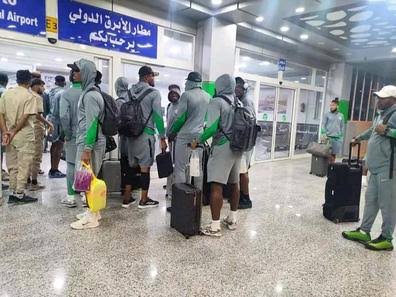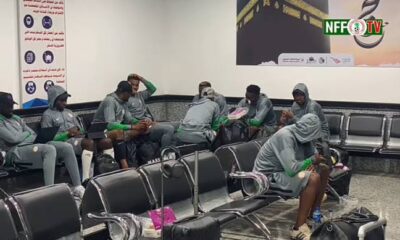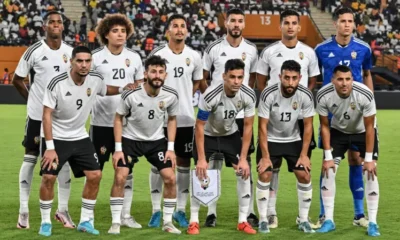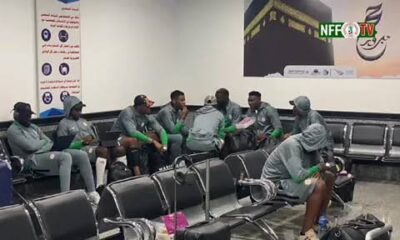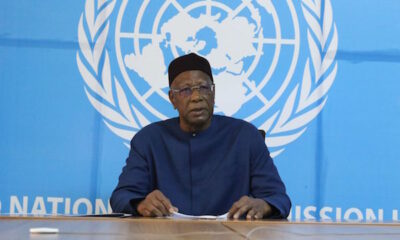After being stranded at a remote Libyan airport for half a day before the game, Nigeria declined to play in their scheduled Africa Cup of Nations qualifier, but they were granted a 3-0 victory over Libya and three crucial points.
Nigeria, who are currently leading Group D, won the match 3-0 on Saturday, putting them in the running to advance to the Confederation of African Football’s (CAF) championships next year.
With two games remaining, Nigeria now has ten points, four more than second-place Benin and five more than Rwanda. Libya is in last place after four games with just one point. The two best teams in the group go to the Morocco finals in 2025.
Citing abuse upon arrival in the nation almost 48 hours prior to the scheduled kickoff, Nigeria had declined to play the match in Benghazi on October 15.
A Nigerian team’s charter jet was diverted on approach to Benghazi and ended up landing in Bayda, leaving the players and officials stranded at a shuttered airport for over 16 hours, nearly 250 km from their destination.
They claimed that during the incident, they were unable to get food or drink and were not in communication with Libyan authorities. As a result, they chose to return to Nigeria by plane rather than play the match.
The Libya Football Federation stated that the event was not intentional and that their players had experienced travel issues throughout their four-day match in Nigeria.
However, CAF determined that Libya had violated the competition rules, which provide that the host association must properly welcome visiting teams, assist them with entry procedures, and provide a bus. According to CAF, Libya was fined $50,000 and Nigeria was given the match with a score of 3-0.
When Libya’s jet arrived hours from the match location and the players had to endure lengthy travel delays, they had already complained about the treatment of their officials and players upon landing in Nigeria for their qualifier in Uyo on October 11.
That game was won 1-0 by Nigeria. Their approach in the lead-up to the return match four days later was heavily denounced throughout the continent as pushing gamesmanship too far and was viewed as a tit-for-tat tactic.
It also brought attention to how visiting teams are routinely treated poorly when they play around Africa, whether in club or national team events. Earlier this week, Patrice Motsepe, the president of CAF, stated that his organisation was considering strengthening its rules and regulations to discourage the mistreatment of visiting teams.
African football is known for treating foreign teams poorly. Common tactics include long and convoluted bus rides, delays at immigration upon arrival, and the provision of subpar training facilities.

